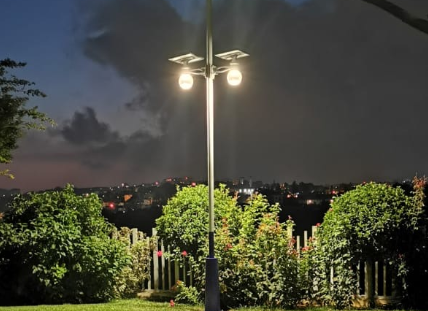How to choose solar storage battery for your need?
The following are the most important considerations you should have on your checklist when shopping for a solar storage battery.

Storage Capacity
Battery’s capacity shows how much electrical power can be stored in a battery. This value is commonly expressed in kilowatt hours. The majority of batteries for residential use are separate modules that can be stacked together to expand the capacity of the solar energy storage systems.The capacity of the solar energy storage system should be appropriate to meet residential consumption demand. In principle, the storage system should be large enough to supply a household with solar power all the night. A battery capacity of 4 to 8 kWh is usually sufficient for an average four-person home consuming around 4,500 kWh annually. If the storage system is too small, not enough energy can be stored to cover the energy needs. The purchase of additional power from the grid becomes necessary. If the storage system is too large on the other hand, unneeded power is permanently stored, reducing the battery’s service life and not saving you any cost.
Power Rating
In other words, capacity is a battery’s size. However, this parameter does not show the amount of power that can be withdrawn from the battery at once. So, you also have to take into account power rating.The power rating of a battery is the amount of electricity your system can deliver at a given moment, measured in kW. The higher the power rating your battery has the more home appliances you can operate at the same time. But higher power means the stored energy in the battery will deplete faster. The key point is to choose a power rating that satisfies your home consumption while scaling the capacity with enough batteries to keep the appliances running long enough.
Round-Trip Efficiency
This parameter shows how much of the electricity fed into the battery can be utilized (expressed as percentage). For instance, if the battery has been charged with 5 kilowatt-hours of power and can provide 4 kilowatt-hours of power to be used, its round trip efficiency is 80%.Generally speaking, a higher round-trip efficiency means you will get more economic value out of your battery. However, there is always some conversion loss, but a lithium battery usually be more than 90% efficient.
Depth of Discharge (DoD)
The majority of batteries have to be kept charged at some level all the time. Full discharging of the battery decreases its lifespan considerably.DoD means how much electricity has been withdrawn from the battery. Many battery makers indicate the maximal possible depth-of-discharge for their products. For instance, the battery with a capacity of 10 kilowatt-hours and 90% depth-of-discharge allows using up to 9 kilowatt-hours before it needs to be charged. The higher depth-of-discharge is, the more capacity of a battery can be used.
Battery Lifespan
The expected life of the battery (and its warranty) can be rated in cycles or years (which is generally an estimate based on the expected typical usage of the battery). The lifespan should also state the expected level of capacity at the end of life.For example, a battery might be warrantied for 5,000 cycles or 10 years at 70 percent of its original capacity. This means that at the end of the warranty, the battery will have lost no more than 30 percent of its original ability to store energy. For lithium batteries this will usually be about 60–80% of the original capacity.
The right battery and size for you is dependent on your specific power needs. Road Smart has launched a new series of products including solar storage battery. To learn more about how Road Smart solar storage battery can help with your solar energy production, please get in touch with us.







